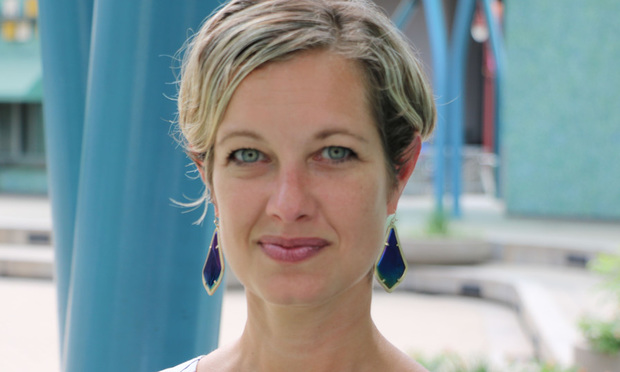Why Orrick's Well-Intentioned Vacation Bonus Misses the Mark
How does a bonus vacation, in reality, truly change the life or mental health of associates who spend two-thirds of their waking weekday hours billing (not at work or commuting, as that figure would be greater); whose worth is measured and rewarded in six-minute increments? It doesn't.
January 18, 2019 at 04:17 PM
6 minute read
 Marcie Borgal Shunk.
Marcie Borgal Shunk.
Smart Strategy
It was Dec. 9, 1999. I had just recorded my 140th hour of the month, my monthly minimum before bonus dollars kicked in. Nine consecutive 15-plus hour days, no weekend. We met our deadline. Despite the intensity, I recall little about the matter or why it was imperative that we accomplish so much in so little time (likely the “my poor time management becomes your emergency” phenomenon, but I digress).
At the culmination of the project I was simultaneously exhausted and energized. My bonus potential was a great incentive in my early 20s. I was ready to rock the month. I sat down with the staffing coordinator to tackle my next assignment. “Well, we've assigned most everything out to those who weren't on the [brand name energy] takeover project. Why don't you just take some time off and enjoy the rest of the month?”
Flabbergasted. Irate. Dumbfounded. Frustrated. Those were a few of the feelings that lurked under the surface as I calmly thanked her and suggested I would like to be put on another matter as soon as possible. Why on Earth would I want to waste all that effort, go unrewarded and, worse yet, have an unplanned vacation foisted upon me? This would not do.
In one single move, the firm I was working with had, in the most well-intentioned manner, acted in complete conflict with its own reward system. Like many law firms today, the firm compensated its professionals for hours worked (note I do not use the term “productivity”). By dismissing, nay, excluding me the opportunity to bill more hours the firm unwittingly took away what motivated me to excel.
Orrick's new vacation policy, according to news sources, offers to foot the bill for a getaway (up to $15,000) for associates who hit their 2,400-hour minimum. It has been heralded as a move to encourage associates to disconnect, unwind, gain balance and perspective and, ultimately, avoid the burnout and negative mental health impacts that plague the legal sector. Yet how does a bonus vacation, in reality, truly change the life or mental health of associates who spend two-thirds of their waking weekday hours billing (not at work or commuting, as that figure would be greater); whose worth is measured and rewarded in six-minute increments? It doesn't.
Transforming the legal industry to respond to people—what individuals need to be self-satisfied, happy and healthy—demands a shift in mindset. The old school mentality of “give me your time and I'll reward you handsomely” has morphed into dangerous territory. It is not linked to productivity. It is not linked to results. And, most critically for the legal profession and the health of those in it, it is not linked to positive mental and physical health.
Myriad scholarly articles and research studies demonstrate causal links between being overworked and negative impacts on health ranging from sleep disturbances to stroke to depression and anxiety. A recent article on a Sidley Austin's partner's suicide underscores this threat to lawyers, raising the question as to what law firms can do about it.
Unfortunately, the answer to the question is not simple. Improving goes much deeper than adjusting work policies to allow for more flexibility and accommodations (not that these are inherently futile). The true culprit lies in the fundamental underpinnings of how law firms reward and measure performance, what they value and what their cultures propagate. Much has been written about the angst the billable hour causes and how it is misaligned with the promotion of healthy, happy talent. The last point on culture, though, is a bit more tenuous for law firms.
Many firms laud their cultures as collaborative and collegial, heralding the unique bond lawyers have with one another as a special differentiator. Some even point to their entrepreneurial spirit. Yet the vast majority of law firms suffer from a number of negative aspects of culture lurking beneath the surface. Many place great value on perfectionism, thereby stifling creativity, innovation and even self-actualization. Few offer consistent cultural experiences to lawyers and professionals at various levels across the firm. This stratified structure perpetuates a sense of hierarchy and can deter the types of meaningful connections necessary to create personal satisfaction (let alone diversity of perspective and evolution).
Furthermore, these cultures are inextricably linked to the limited cultivation of leadership potential across law firms of all sizes. According to Brené Brown's comprehensive research into leadership development, cultural norms which prevent individuals from sharing vulnerability—including so-called “hero cultures,” which applaud great exertion of effort and frown on failure in any form—hinder the fostering of good leaders. In turn, poorly prepared leaders perpetuate the unhealthy habits and norms keeping the firms tied to talent models, reward structures and performance management systems which are harmful to the well-being of the firms and the people in them. It's time to break the cycle.
Brown writes, “if we find ourselves addressing the same problematic behaviors over and over, we may need to dig deeper to the thinking and feeling driving those behaviors.” For many law firms, that means a soul-searching exercise for the firm as an institution, the partners who make up the ownership class and the leaders bestowed with the responsibility of heralding the firm into the next generation. Enacting meaningful change requires the types of bold, heartfelt leadership lauded by Brown and others, including change management guru John Kotter. It also demands a keen understanding of the nuances of culture and cultural change. Only with these investments will law firms truly begin to dismantle the self-perpetuating cycle of harm and step onto the path of healing and helping one of their greatest assets: their people.
Marcie Borgal Shunk is president and founder of The Tilt Institute, a firm dedicated to unveiling new perspectives on law firm growth through intelligence, innovation and intuition. She specializes in helping law firm leaders make better, data-driven business decisions. Shunk is also a member of the ALM Intelligence Fellows Program.
More information on the ALM Intelligence Fellows Program can be found here.
This content has been archived. It is available through our partners, LexisNexis® and Bloomberg Law.
To view this content, please continue to their sites.
Not a Lexis Subscriber?
Subscribe Now
Not a Bloomberg Law Subscriber?
Subscribe Now
NOT FOR REPRINT
© 2025 ALM Global, LLC, All Rights Reserved. Request academic re-use from www.copyright.com. All other uses, submit a request to [email protected]. For more information visit Asset & Logo Licensing.
You Might Like
View All

Pa. Defense Firm Sued by Client Over Ex-Eagles Player's $43.5M Med Mal Win
3 minute read
Pa. High Court: Concrete Proof Not Needed to Weigh Grounds for Preliminary Injunction Order
4 minute read
Superior Court Rejects Pa. Hospital's Challenge to $7.3M Med Mal Judgment
3 minute readTrending Stories
- 1Russia’s Legal Sector Is Changing As Sanctions Take Their Toll
- 2Government Contracting Clients Look to Firms to Stay on Top of Trump Policy Changes
- 3Law School Applications are Up Across the Country. Law Deans Aren't Sure Why
- 4Retention, Development and 'Empowering Teams': This Am Law 200 Firm's Newest Practice Leader Says Objectives Haven't Changed
- 5From Laggards to Tech Founders: Law Firm Innovation Is Flourishing
Who Got The Work
J. Brugh Lower of Gibbons has entered an appearance for industrial equipment supplier Devco Corporation in a pending trademark infringement lawsuit. The suit, accusing the defendant of selling knock-off Graco products, was filed Dec. 18 in New Jersey District Court by Rivkin Radler on behalf of Graco Inc. and Graco Minnesota. The case, assigned to U.S. District Judge Zahid N. Quraishi, is 3:24-cv-11294, Graco Inc. et al v. Devco Corporation.
Who Got The Work
Rebecca Maller-Stein and Kent A. Yalowitz of Arnold & Porter Kaye Scholer have entered their appearances for Hanaco Venture Capital and its executives, Lior Prosor and David Frankel, in a pending securities lawsuit. The action, filed on Dec. 24 in New York Southern District Court by Zell, Aron & Co. on behalf of Goldeneye Advisors, accuses the defendants of negligently and fraudulently managing the plaintiff's $1 million investment. The case, assigned to U.S. District Judge Vernon S. Broderick, is 1:24-cv-09918, Goldeneye Advisors, LLC v. Hanaco Venture Capital, Ltd. et al.
Who Got The Work
Attorneys from A&O Shearman has stepped in as defense counsel for Toronto-Dominion Bank and other defendants in a pending securities class action. The suit, filed Dec. 11 in New York Southern District Court by Bleichmar Fonti & Auld, accuses the defendants of concealing the bank's 'pervasive' deficiencies in regards to its compliance with the Bank Secrecy Act and the quality of its anti-money laundering controls. The case, assigned to U.S. District Judge Arun Subramanian, is 1:24-cv-09445, Gonzalez v. The Toronto-Dominion Bank et al.
Who Got The Work
Crown Castle International, a Pennsylvania company providing shared communications infrastructure, has turned to Luke D. Wolf of Gordon Rees Scully Mansukhani to fend off a pending breach-of-contract lawsuit. The court action, filed Nov. 25 in Michigan Eastern District Court by Hooper Hathaway PC on behalf of The Town Residences LLC, accuses Crown Castle of failing to transfer approximately $30,000 in utility payments from T-Mobile in breach of a roof-top lease and assignment agreement. The case, assigned to U.S. District Judge Susan K. Declercq, is 2:24-cv-13131, The Town Residences LLC v. T-Mobile US, Inc. et al.
Who Got The Work
Wilfred P. Coronato and Daniel M. Schwartz of McCarter & English have stepped in as defense counsel to Electrolux Home Products Inc. in a pending product liability lawsuit. The court action, filed Nov. 26 in New York Eastern District Court by Poulos Lopiccolo PC and Nagel Rice LLP on behalf of David Stern, alleges that the defendant's refrigerators’ drawers and shelving repeatedly break and fall apart within months after purchase. The case, assigned to U.S. District Judge Joan M. Azrack, is 2:24-cv-08204, Stern v. Electrolux Home Products, Inc.
Featured Firms
Law Offices of Gary Martin Hays & Associates, P.C.
(470) 294-1674
Law Offices of Mark E. Salomone
(857) 444-6468
Smith & Hassler
(713) 739-1250





